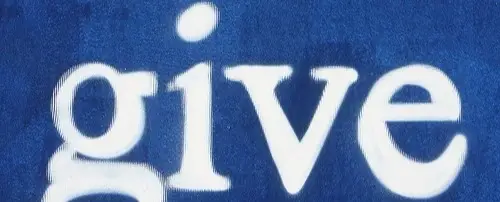Will Being More Generous At Work Help You Succeed?

We’ve written before about how giving to others at work can help you be successful, but how would your work life change if you said “yes” to all requests for help?
Last week, The New York Times profiled Adam Grant, a professor at the Wharton School at the University of Pennsylvania who is known for his helpfulness and giving spirit. In addition to studying and writing about “givers, matchers, and takers,” Grant is himself a giver: advising companies and students alike, making introductions, writing recommendations, and more.
One of the main points of the article (and of Grant’s research) is that people who give to others, and use that as a motivation for their work, are the most successful in the end.
It’s a long read, but has interesting implications for people who are naturally predisposed to give back and help others, including those in the nonprofit sector. Grant has a book coming out, Give and Take, where he outlines that people fall into three categories: givers, takers, and matchers, who often give only when they can expect something in return. From the Times:
“Give and Take” incorporates scores of studies and personal case histories that suggest the benefits of an attitude of extreme giving at work. Many of the examples—the selfless C.E.O.’s, the consultants who mentor ceaselessly—are inspiring and humbling, even if they are a bit intimidating in their natural expansiveness. These generous professionals look at the world the way Grant does: an inbox filled with requests is not a task to be dispensed with perfunctorily (or worse, avoided); it’s an opportunity to help people, and therefore it’s an opportunity to feel good about yourself and your work. “I never get much done when I frame the 300 e-mails as ‘answering e-mails,’ ” Grant told me. “I have to look at it as, How is this task going to benefit the recipient?” Where other people see hassle, he sees bargains, a little work for a lot of gain, including his own."
And while Grant’s story can be inspiring, the reporter also noticed how taxing such a life can be, as she followed the professor and saw how much work went into being a giver at Grant’s level:
"It must be said that in the middle of a national debate about flexible hours and telecommuting, there is precious little in Grant’s book about work and family balance. The division of labor in Grant’s own marriage is very traditional; his wife, who has a degree in psychiatric nursing, does not work outside the home, devoting her time to the care of their two young daughters and their home. Grant would be an extraordinary giver under any circumstances; but it can only help that he doesn’t have to worry about running to the grocery store or renewing the car registration."
“Sometimes I tell him, ‘Adam — just say no,’ ” his wife, Allison, told me, referring to the hundreds of requests he gets every day. “But he can’t say no. That’s what he is. That’s his way.”
Personally, I was fascinated by this profile of Grant and saw glimpses of my own personality in his work. (Just small glimpses! I definitely say “no” way more than Grant.)

